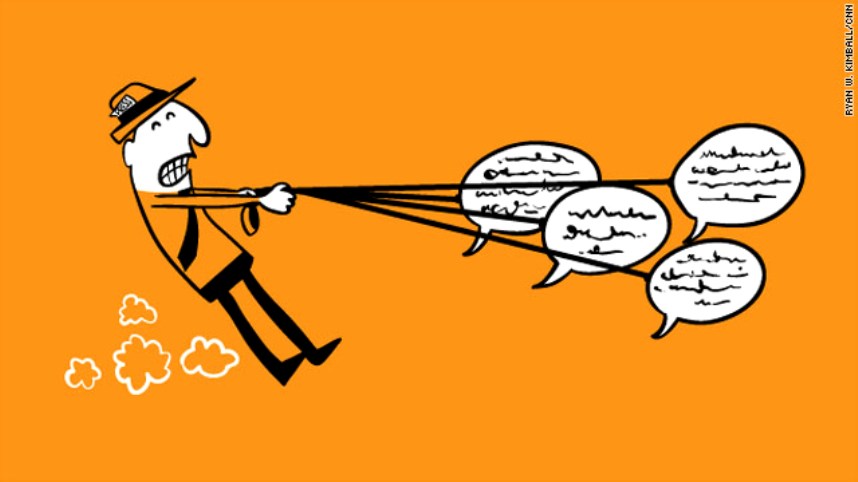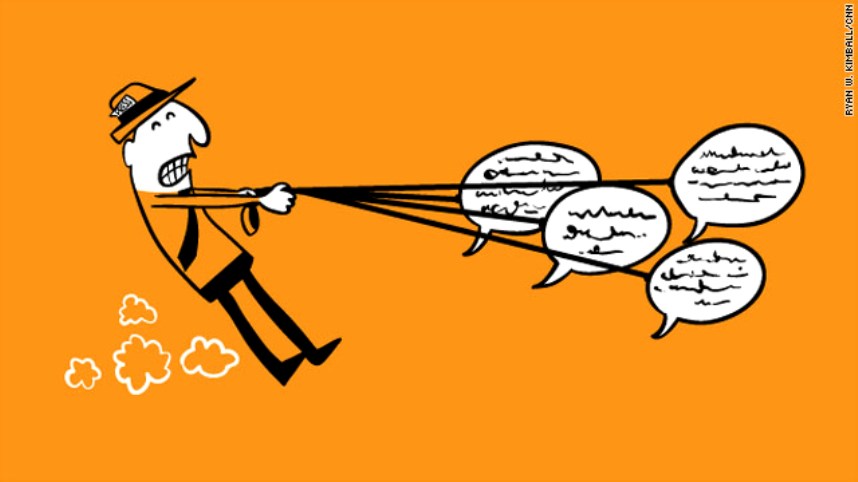I was overwhelmed and grateful to have received more than 20 comments on my three-part series, Trust and Confidence, about Secret Service Director Lewis Merletti’s 1998 principled battle with Independent Counsel Kenneth Starr.

I have discussed this story with a handful of friends who kept wondering when I was going to write-up an analysis of a story that I had spent 8 1/2 years researching.
A frequent visitor to this site, John Baldwin, who regularly writes comments, would often ask me: “This is good information, Jim. Why don’t more people comment?”
Actually, the subject of “comments” on media websites drew some recent attention by Room for Debate (Apr. 18), on The New York Times website. Their question: Have Comment Sections on News Media Websites Failed?
As part of the story, The Times offered readers a look inside their process for evaluating comments:
“We are interested in articulate, well-informed remarks that are relevant to the article. We welcome your advice, your criticism and your unique insights into the issues of the day.
“A few things we won’t tolerate: personal attacks, obscenity, vulgarity, profanity (including expletives and letters followed by dashes), commercial promotion, impersonations, incoherence and SHOUTING.”
Regarding the question raised, The Times writes, “Many newspapers and online media companies have begun disabling comment sections because of widespread abuse and obscenity. … Have comment sections — once thought to be a democratizing force in the media — failed?,” they ask.
Jamilah Lemieux, the senior editor of Ebony magazine writes, “With the exception of just a few web pages and blogs… comment sections seem to be little more than a microphone for the Internet’s most despicable, cowardly and hateful personalities. It is in comment sections that trolls get a static space with a built-in audience, at which they can hurl the kind of shocking vitriol and bigotry most wouldn’t dare express offline.”
Eun-Ju Lee, a professor in the department of communication at Seoul National University, is the incoming editor in chief of the journal Human Communication Research, writes, “Comment sections can have interesting effects on readers. For one thing, the mere existence of them at the bottom of a story can change how readers perceive the partiality of the reporting. My research has found that when comments are uncongenial to a reader’s own opinion — especially on an issue that hits close to home — the reader is more likely to blame the article for bias. They are also more likely to rate the same story more negatively when accompanying comments are vulgar or inflammatory. …
“We cannot expect everyone to act rationally online, but comment sections can showcase competing viewpoints, arouse the public’s interest in important issues and facilitate arguments around them. These forums allow for a far more participatory news media.”
Good points.
What has always interested me in the comments that I have read, like The Times, are not only the number, but the critical thinking utilized by readers.
Reacting to a recent story (Apr. 22), regarding Mississippi and North Carolina’s laws against the L.G.B.T. community, a reader from Newton, Mass. writes, “Whether you are a governor in North Carolina, a state legislator in Mississippi, or an analyst on ESPN, your intolerance and unwillingness to embrace America’s growing acceptance of LGBT folks carries a real price tag. Bigotry is not ‘principle’ or an expression of ‘religious freedom.’ Let the chips fall where they may.”
Another reader, from Iowa, writes, “I belong to probably the most privileged demographic in history – white, male, heterosexual, Christian, American. I’m also old enough to remember the ‘White Only’ signs at bathrooms and water fountains in the South. And I am very discouraged to see another form of bathroom bigotry reappear 60 years later. And appalled that this ‘movement’ is apparently coming from supposedly ‘Christian’ organizations.”
Reader comments can also point out errors in reporting.
In a commentary I wrote last July (It’s the Law), a reader pointed out a big error on my part when I pre-judged a California mother to be an anti-vaccine parent based on a protest sign which read: “My Child, My Choice.”
“Sarah Mazerik was one of many individuals protesting outside the California State Capitol after the Assembly approved a measure requiring all children going to both public and private school to get the required health vaccines before attending.”
One reader said, “Before you write an article, it might be good to do some actual research. You may know some things about vaccinations, but you obviously don’t know anything about your example, Sarah M, because you completely misrepresented her opinions. How ironic that you imply that she hasn’t done the necessary research, when, all the time, it’s you who have based an entire article on false assumptions about Sarah.
“Congrats for being a coward?”
Ouch!
Sarah Mazerik, herself, wrote, “If you could have seen the other side of my sign, you would have read ‘pro vaccine, no forced vaccine.’ ”
“If I have inaccurately characterized your position,” I wrote Mrs. Mazerik, “I would like to correct that.”
I included Mrs. Mazerik’s unedited comments in a follow-up commentary, (It’s the Law – Rebuttal).
“I don’t fault you for assuming I was an ‘anti-vaxxer,’ Mazerik writes. “They have been the louder voice throughout this nonsense. … The majority of Californians clearly believe that vaccines are safe and effective. I do too. But the question we should be debating is: ‘Should the State be given the power to make this decision for us?’ ”
She made a lot of good points, and the whole process made me much more careful in the future.
After her story was posted, the reader with the harshest criticism of my original piece left the following comment: “Thank You.”
In the more than eight years this website has been running, I have only had to censor one comment. It came from an anonymous writer who made a personal attack that had absolutely nothing to do with the commentary itself.
Bottom line: Comments have the ability to increase viewpoints and stimulate discussions on important issues as well as correcting assumptions and faulty thinking on my part. While some can be painful, ultimately, I learn from them.
So, readers… keep me honest. The next commentary I write that stirs a reaction, click on the link below the title, “comment,” and write one!
Comments










